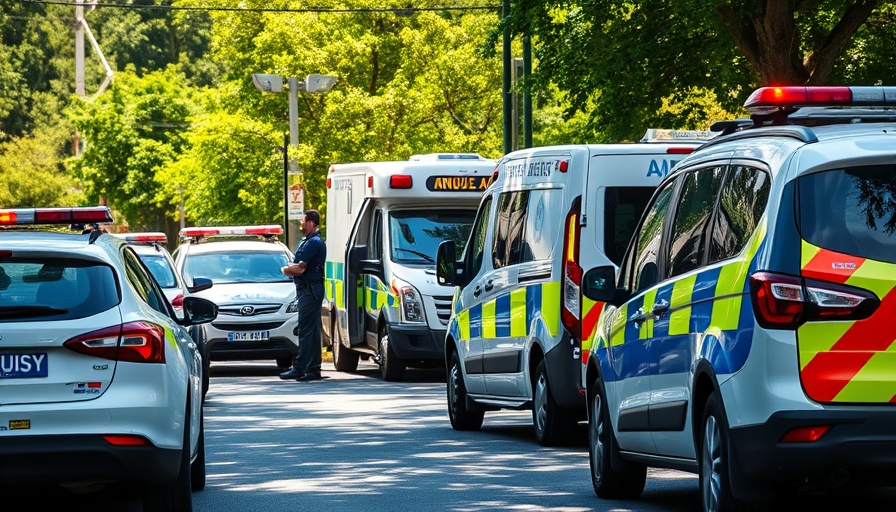
Understanding the Tragedy: What Happened at Florida State University
The recent shooting at Florida State University (FSU) has left the community in shock and mourning. On April 17, 2025, a 20-year-old current student named Phoenix Ikner allegedly opened fire, killing two individuals and injuring six others before being subdued by police. Reports indicate that Ikner, who used a personal handgun belonging to his mother, acted alone during this tragic event.
According to Chief Lawrence E. Revell of the Tallahassee Police Department, Ikner was shot during the police response when he failed to comply with their instructions. As investigations begin, there are numerous unanswered questions about the motives behind his actions and the background leading up to this unthinkable act of violence.
A Closer Look at the Gunman: Who Was Phoenix Ikner?
Witnesses and peers paint a different picture of Ikner than what is often presumed of a mass shooter. A graduate of Lincoln High School in Tallahassee, he was involved in the Leon County Sheriff’s Office Youth Advisory Council, aimed at addressing issues faced by young people in their community. Former council member Jacob West described Ikner as "always in good spirits" and someone who seemed to care deeply about helping others. He was known for his interests in video games and vehicles, sharing aspirations of a career in law enforcement, which waned as he finished his high school years.
Despite this, no signs indicated he held violent tendencies. West noted that firearms were never part of their conversations, reaffirming a common narrative that struggles and motivations can remain hidden behind an individual's exterior.
The Aftermath: Impact on the Community and Students
This heartbreaking incident has raised serious discussions about gun laws in America and the societal pressures facing today’s youth. FSU, grappling with this tragedy, will have to confront the emotional and psychological impact on its students and faculty. Campus safety measures will likely come under scrutiny, alongside broader conversations regarding mental health resources available to students.
As communities nationwide analyze incidents like this, many are demanding changes in gun legislation aimed at preventing future tragedies. Advocacy groups argue that the rise in school shootings requires urgent attention from legislators as they tackle the complexities of gun control and youth safety.
Future Predictions: The Ongoing Battle for Gun Control Reform
In the context of increased gun violence across the United States, this tragic event will undoubtedly become part of a larger conversation on gun laws. Ongoing debates within Congress often reflect deep ideological divides, with many advocating for stricter regulations while others emphasizeSecond Amendment rights. How lawmakers respond to such incidents will significantly impact the psychological safety of students across the country.
As elections approach, candidates must address public concerns around national security and school safety, presenting actionable solutions that resonate with their constituents’ sentiments. This highlights an important trend: that voters are increasingly prioritizing gun reform as a critical issue, changing the landscape for future elections.
Making Sense of the Tragedy: Lessons Learned
The tragedy at FSU serves as a stark reminder of the need for communities to engage with young people, ensuring that they feel heard and supported. Schools, families, and local organizations must foster environments where individuals can express their troubles openly, helping to identify potential issues before they escalate into violence.
Greater attention must be paid to mental health resources and how communities can leverage them to support their youth. As awareness of mental health challenges grows, efforts to provide accessible care become more critical than ever in preventing incidents like the one at FSU.
Call to Action: How Can We Ensure Safety in Our Communities?
While the investigation into the shooting at Florida State University continues, it’s crucial for communities nationwide to engage in dialogues about gun safety and mental health resources. Encourage local advocacy for stronger policies, support community-based initiatives aimed at youth engagement, and call for the humane treatment of mental health issues. Change begins at the community level, and every voice matters in addressing the challenges we face today.
 Add Element
Add Element  Add Row
Add Row 



 Add Row
Add Row  Add
Add 


Write A Comment